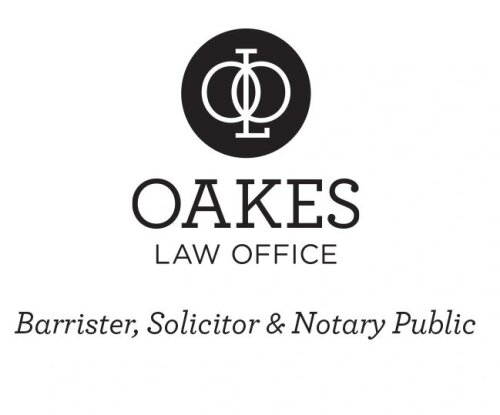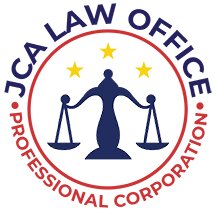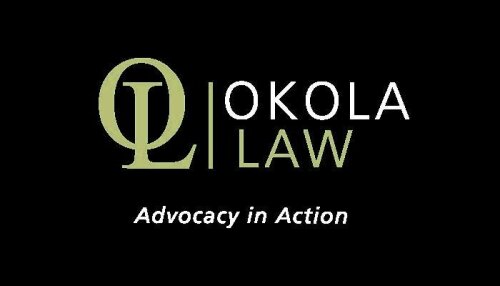Best Probate Lawyers in Toronto
Share your needs with us, get contacted by law firms.
Free. Takes 2 min.
List of the best lawyers in Toronto, Canada
About Probate Law in Toronto, Canada:
In Toronto, Canada, Probate law refers to the legal process in which a will is reviewed to determine if it's valid and authentic. Probate also refers to the general administering of a deceased person's will or the estate of a deceased person without a will. The process could involve a court where the appointed executor is formally approved and the assets of the deceased are distributed. It includes the identification and inventory of the deceased person's property, paying of debts and taxes, and distribution of the property or assets according to the will, or according to the succession laws of Ontario when there is no will.
Why You May Need a Lawyer:
You may require a probate lawyer if the probate process becomes complex due to various reasons such as multiple beneficiaries, a significant amount of debts, and property located in another province or country. In the event that the deceased has a large amount of assets, or there are disagreements among family members regarding the distribution of assets, retaining a legal expert can help resolve such disputes professionally. In instances where the validity of the will is challenged, a lawyer can ensure you navigate the situation appropriately. It's helpful to have a lawyer to ensure all paperwork is correctly completed and all legal protocols are followed.
Local Laws Overview:
According to Ontario's laws, if a deceased person owned property in their name or has assets above a certain value, probate could be required. If a will exists, the named executor has the responsibility of submitting an application for a Certificate of Appointment of Estate Trustee, formerly known as probate, to the Ontario Superior Court of Justice. The Estate Administration Tax, or probate fees, are also applicable in Ontario, calculated on the total value of the deceased's estate.
Frequently Asked Questions:
1. What is probate?
Probate is the legal process where a will is reviewed to determine its authenticity. A probate court decides on the division and distribution of assets of the deceased, as specified in their will.
2. What does an executor do?
The executor, as named in the will, is responsible for administering the estate, which includes tasks like settling debts, filing taxes, and distributing the remaining assets as outlined in the will.
3. What happens if there is no will?
When a person dies without a will, they are said to have died "intestate". In such cases, the estate is distributed according to the succession laws of Ontario.
4. What is a probate fee?
A probate fee or Estate Administration Tax is a tax imposed on the estate before it can be probated and administered.
5. Is probate always necessary?
Probate may not always be necessary, particularly in cases when the deceased assets can be transferred to their named beneficiaries without court intervention. It depends on the specifics of the assets and how they are held.
6. How long does probate take?
The probate process duration can vary significantly, often between several months to over a year, depending on the complexity of the estate and any disputes that might arise.
7. Who can challenge a will?
Under Ontario law, those with a financial interest in the estate - such as beneficiaries or creditors, can challenge a will.
8. How can an estate lawyer help?
An estate lawyer can provide guidance throughout the probate process, help resolve disputes about the validity of the will or distribution of assets, and can ensure that all legal protocols are followed correctly.
9. How are probate fees calculated?
The Estate Administration Tax or probate fees are calculated based on the total value of the deceased’s property that is subject to probate.
10. What happens to the deceased's debts?
The executor of the estate is responsible for using the assets of the deceased to settle any outstanding debts. After the debts have been settled, the remaining assets are then distributed according to the will.
Additional Resources:
Besides consulting with a professional probate lawyer, the Law Society of Ontario and Ontario Ministry of Attorney General websites provide valuable resources and information regarding probate and estate law. Probate forms needed for the probate process can also be downloaded from the Ontario Court Services' website.
Next Steps:
If you believe that you need legal assistance with probate in Toronto, begin by identifying several potential probate lawyers who specialize in estate law. Arrange consultations with these lawyers to discuss your needs and assess their capability to assist you. Following this, make an informed decision about hiring the lawyer who best meets your criteria.
Lawzana helps you find the best lawyers and law firms in Toronto through a curated and pre-screened list of qualified legal professionals. Our platform offers rankings and detailed profiles of attorneys and law firms, allowing you to compare based on practice areas, including Probate, experience, and client feedback.
Each profile includes a description of the firm's areas of practice, client reviews, team members and partners, year of establishment, spoken languages, office locations, contact information, social media presence, and any published articles or resources. Most firms on our platform speak English and are experienced in both local and international legal matters.
Get a quote from top-rated law firms in Toronto, Canada — quickly, securely, and without unnecessary hassle.
Disclaimer:
The information provided on this page is for general informational purposes only and does not constitute legal advice. While we strive to ensure the accuracy and relevance of the content, legal information may change over time, and interpretations of the law can vary. You should always consult with a qualified legal professional for advice specific to your situation.
We disclaim all liability for actions taken or not taken based on the content of this page. If you believe any information is incorrect or outdated, please contact us, and we will review and update it where appropriate.
















